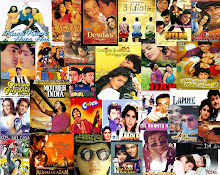I live in Mexico now and Bollywood movies are scarce. While I watch Erosnow, many of my favorites and some of the latest releases are not available.
When I saw Hair India, a documentary, listed on the calendar of LA68, a cafe in Merida that shows international documentaries, I was thrilled. I suspected Hair India would be a visual tour of India while the story was being told and I was right.
The modernization of an ancient tradition of shaving your head and donating your hair at a temple to repay the debt of god Vishu is at the heart of the documentary.
A family wants to bring their children to the Simachalam Temple to participate in the family’s religious tradition of donating their hair. In the past, the donated hair was burned; today, the hair is collected and processed by Indian and Italian vendors to create expensive hair extensions for those seeking the latest fashion trends in beauty.
Sangeeta, the executive editor with Hello magazine is preparing to attend several fashion events in Mumbai and wants to get hair extensions.
 Temple authorities manage the hair contracts which can cost as much as $100,000USD. Hair extensions can cost as much as $4,000USD.
Temple authorities manage the hair contracts which can cost as much as $100,000USD. Hair extensions can cost as much as $4,000USD.
Indian and Italian vendors process the hair in factory-like settings.
The filmmakers juxtapose the life of those living in poverty with the modern life of Mumbai including upscale malls and a variety of fashion events. The documentary follows the route the donated hair at the temples takes as it passes through various hair factories where the hair is processed by hand and sorted into batches based on length, quality and color until it is shipped out as hair extensions to hair salons worldwide.
Hair India takes the viewers from Bengal to Bangalore to Rome where the hair extensions are created and distributed worldwide by “Great Lengths.” Many international movie stars use them. Hair extensions are so closely incorporated into the client’s natural hair it is hard to tell that extensions are being used.
Bollywood stars figure prominently in the documentary. The faces of well-known stars jump out from magazine covers, posters, wall art, TV screens, and more. Shah Rukh Khan, Kajol, Aamir Khan are just some of the faces glimpsed in magazine inventories, beauty shops, offices, fashion events, and more.
Hair India briefly discusses beauty trends such as the extensive use of “fairness” creams in India which highlights the preference for lighter skin tones. Sangeeta cites a survey where lighter-skinned models sold more magazine copies than dusky-skinned models. The mother in the family notes that an Indian woman’s hair is her crowning glory. Here in the Yucatan, ancient Mayans used methods to deform the shape of their heads and cross their eyes in the name of beauty. In addition, they pierced their genitalia.
The most surprising part of the documentary for me was the distance the family had to travel to make the gift of their hair. They traveled for two days; they walked and took various modes of transportation to reach the temple. They hoped their sacrifice would improve their family’s fortunes.
In essence, a multi-million dollar beauty business has evolved from a religious offering.
For a in-depth story about the production of Hair India, see the interview with Director Raffaele Brunetti on Aljazeera at: http://www.aljazeera.com/programmes/witness/2010/01/2010127121316920743.html
Raffaele Brunetti, Director, Producer
Carmen Gonzales, Executive Producer
Marco Leopardi, Director, Cinematographer
Gianni Maitan, Cinematographer
Marco Pasquini, Cinematographer
Ilaria De Laurentilis, Editor
Released: 2008















